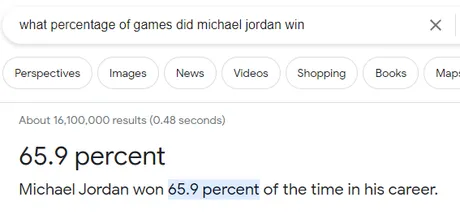
"How many red cars did you see on your drive?"
It's a weird question, right?
Red Car Theory is an interesting philosophical lesson in perception and awareness. It starts with the simple question. How many red cars did you see today? The vast majority of those who respond will not be able to answer the question with any kind of accuracy, which is exactly the point. They'll say something like, "Quite a few I'm sure."
Opportunity knocks more than once.
The point of this analogy is to demonstrate that opportunities are around us all the time, but more often than not we are completely blind to them, just like red cars on the road. For example, if we got paid even just $1 for every red car we saw when we were driving, the chance that we would remember exactly how many red cars we saw that day would skyrocket exponentially.
Hindsight is 20/20
Very often within my own life experience I've realized many squandered opportunities that I simply allowed to pass me by in retrospect. Ah, the infinite regrets of existence! Best not to dwell on them, but also important to at least acknowledge our mistakes if only to correct the behavior that led us down those dead ends.
Fear of failure
One of the most important aspects of success is ironically the opposite of itself. In order to achieve the results we're looking for we must will willing to lose often, otherwise we will either become frozen to inaction like a deer in headlights or emotionally tilted leading to irrational decision making that will lead to even more failure. (See: Ladder Anxiety)
The 60/40 rule
Even if we are at the tippy top of our game we should expect to lose at least 40% of the time. All those trading "influencers" that we see on the Internet that say they can not only get a 90% win-rate but also teach others to do the same? Yeah, that's a blatant lie. This is basic math and common sense.
Those who cannot do: teach.
If anyone could profitably trade any financial market they would never teach anyone else the secret because then those new market participants become competition and the edge is lost. Anyone who claims otherwise is selling a course for $3000 hoping greedy or desperate people are going to fall for the ruse. Never believe these charlatans. Snake oil is snake oil.

Testing the 60/40 rule
I've never looked up Michael Jordan's win-rate. Many consider him to be the best of the best of the best in the game of basketball, and even he apparently only has only won two thirds of his games. This is further evidence to show that even the best masters of all the masters are still going to lose at least one third of the time even after ascending to the top of their field (or 'court' as the case may be).
The math on this becomes very interesting in comparison to the average 50/50 win:loss ratio. Imagine that the Bulls, without Jordan, would have won 50% of their games without the best player of all time. That implies that Jordan only won 15.9% of games that his team would have otherwise lost. Rounded in Jordan's favor, that's only 1 out of 6 losses that he turned into a win. That tiny edge is what makes a master a master.
Looking back at the 60/40 numbers, it's easy to see that we only need to turn 1 out of 10 games from a loss into a win to get that 60% win-rate. 6 wins, 4 losses. 60%/40%. This means that all the work and expertise we put into making competitive moves is only going to actually pay off 10% of the time, at best. More likely than not it's more like 55%/45%. These are the statistics of a successful person, and it all starts with that willingness to lose gracefully and learn from those mistakes to improve performance down the road.
Graceful sportsmanship
Nobody likes a sore loser, and winners that gloat over victory are even worse. No matter the outcome there is always something to learn, and more often than not the best lessons come from failure, similar to the scientific method. It's very difficult to actually get better at something when there isn't anyone else left to learn from. It's lonely at the top.
Gratitude goes a long way.
We should always try to be grateful for what we've got and utilize the tools we have at our disposal to maximum effect. Not every win in life requires someone else to lose. Life itself is not a zero sum game, but rather a cooperative. It's humanity against mother nature, and we are more often than not the losers. It's important to remember that sometimes it's not what you know, but who you know. Networking is key, while burning bridges is a sign of weakness and immaturity. A little pleasantness can go a long way in this harsh reality of ours.

Are you lucky or unlucky?
Is the glass half empty or is it half full? Growing up I've always felt as though I was somewhat lucky. However I've since realized that this is just a self-imposed mindset. No one is lucky or unlucky for the most part. All that matters is what we choose to put focus on. Are we more likely to remember the wins, or the losses? That is what determines our perception.
Don't compare oneself to others.
Avoiding envy can be difficult, but also necessary. If we go to the gym to make ourselves stronger it doesn't do much good to compare our strength to the person standing next to us whose been there for years and done all the work already. All we can do is try to be better than we were yesterday. This is a slow process that can get easily derailed if we succumb to petty feelings of jealously.
Education makes a good investment
The things we learn along the way can't be taken away as easily as material possessions. Experience and knowledge are vital for self-improvement. Would we rather be given a fish or be taught how to catch fish for ourselves? Consistently taking shortcuts and cutting corners is guaranteed to result in diminished returns and blowback sooner or later.
Conclusion
How many red cars did you see today, anon? Are you the unlucky one? Is the fear of failure paralyzing? Is the world passing you by? Is it all in your head?
Try to view the world using a more optimistic filter.
The lens of perception is a powerful tool for self-improvement.
Perception is reality.
Return from Red Car Theory to edicted's Web3 Blog
